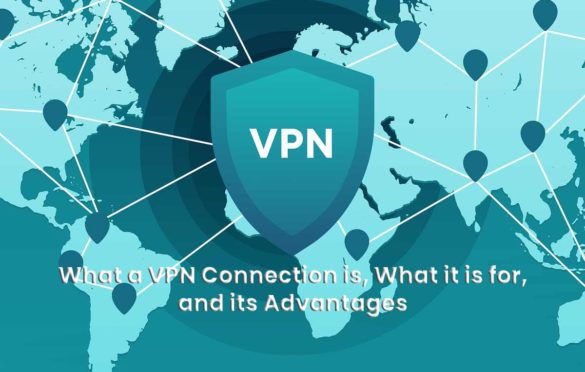
What is a VPN connection, what is it for and what advantages does it have?
We will explain what a VPN connection is, what it is for, and its advantages. VPN connections are by no means a new invention. But it is now that they are beginning to gain traction among the general public. While traditionally, their use was more common in the business environment, the great versatility of these connections and their multiple applications make them increasingly popular.
Table of Contents
What is a VPN
Let’s start with the basics. VPN is an acronym for Virtual Private networks or virtual private networks that, unlike other more cryptic computer words like DNS or HTTP, gives us fairly accurate clues.
The keyword here is virtual since it is this property that generates the need for the VPN itself and allows VPN connections to offer you the multiple uses that we will see later.
Your mobile phone, PC, television, and other devices generally communicate with the router or modem that connects your home with your Internet provider, either by cable or wirelessly, to connect to the Internet. For those living in remote areas, there may be limited options and availability when it comes to the internet. For example, likely choices include satellite, DSL, and fixed wireless internet. One of the best rural internet options for those living remotely is satellite. Like all internet types, satellite has some drawbacks including soft or hard data caps. The components are different if you are using your mobile data connection (which includes its modem and talks to the telephone antenna). Still, the essence is the same: your device connects to another, connecting to the Internet.
VPN Servers
However, it is another peculiarity of VPN connections, making them so fashionable today: data tunnels. Normally, while using the Internet, your device contacts your Internet provider, which is the one that connects with the different web services to offer you, for example, YouTube videos.
When you connect to a VPN connection, this changes. All your network traffic continues to go from your device to your Internet provider, but it goes directly to the VPN server, from where it will depart to the destination. Ideally, the connection is encrypted, so your Internet provider doesn’t know what you’re accessing. For practical purposes, your IP address is that of the VPN server: in many ways, it is as if you are physically there, connecting to the Internet.
What are VPN Connections for?
It is an open secret that is especially important in the corporate environment, but its uses do not end there much less.
These are the main uses of VPN connections.
- Telecommuting
- Avoid censorship and geographic content blocking
- Extra layer of security
- P2P Downloads
Advantages of VPN connections
Now that we know what a VPN connection is and what it is for, it is time to summarize a list of the advantages and disadvantages. First, the positive part:
- It works in all applications, since it routes all Internet traffic, unlike proxy servers. You can only use in the web browser and a handful of other applications that let you configure advanced connection options.
- Easily connects and disconnects. Once configured, you can activate and deactivate the connection as you wish.
- Additional security in WiFi access points, as long as the connection is encrypted, of course
- False your location, as we have already seen in the previous section. A VPN connection is an effective way to avoid censorship or access content limited to a certain region.
- Your Internet provider cannot know what you do on the Internet. Don’t you want your internet provider to know that you spend hours watching kitten videos on YouTube? With a VPN they won’t know what you do, but beware, which manages the VPN will.
Also Read: What is CRM And Why It Is Important?
READ MORE:- thedelightbea



